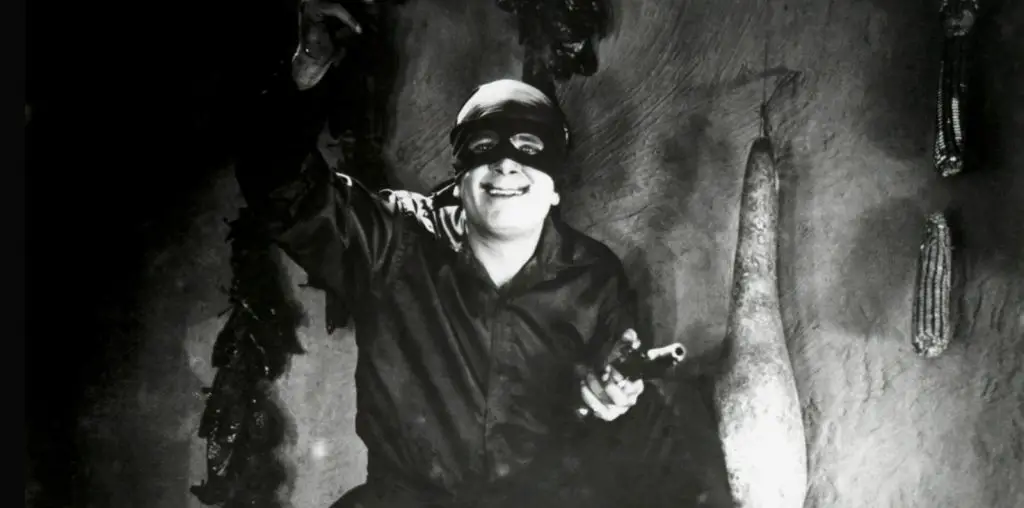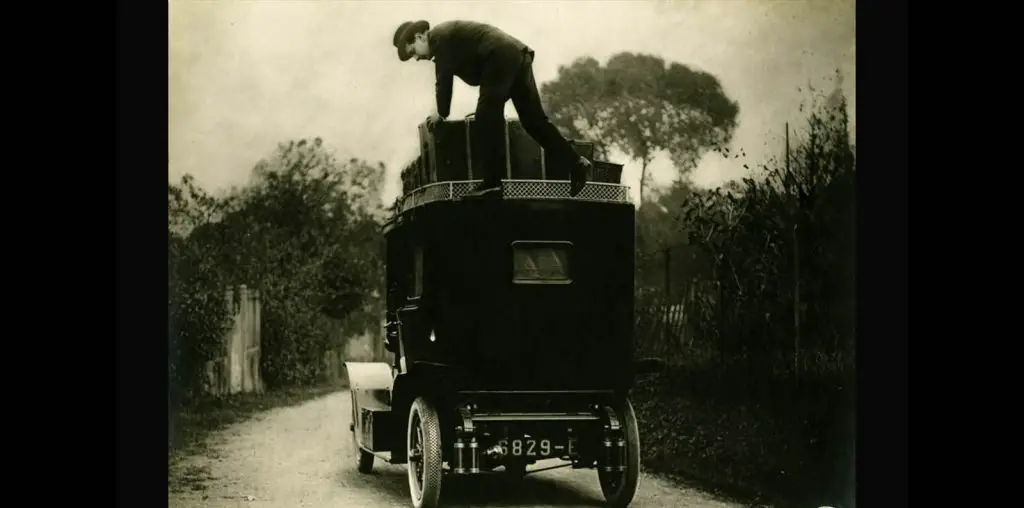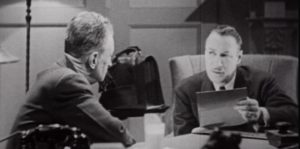
It appears that through human history, there have always been dark figures lurking in the shadows fighting for justice and the innocent, as law enforcement and our leaders turn a blind eye. In our walk down film history, the masked hero began with Judex, followed by Zorro, and now stepping up to the plate is The Shadow.
Created by Walter B. Gibson, The Shadow first started as a series of pulp fiction novels before moving to weekly radio dramas. Waging war against crime, The Shadow dons a wide brim hat with a black cloak and scarf to hide his identity as his true persona lives a “normal” life. Along with the aid of a few sidekicks and allies, The Shadow hides…in the shadows thwarting evil doings any chance he gets.
After a successful radio run and a run of serial shorts in the theaters, The Shadow Strikes (1937) became the first feature film starring our cloaked crusader. Rod La Rocque plays Lamont Granston and his titular alter ego. The film opens as The Shadow foils an attempted robbery at an attorney’s office by the henchmen of the crime boss, Warran Berranger (John Carnivale). Just as the police arrive, Granston steals and assumes the identity of the attorney.
Later, as the attorney, Granston is summoned to the home of Caleb Delthern (John St. Polis), who needs to rewrite his will quickly. While finalizing the details, Caleb is shot. Granston decides to continue his charade as both the attorney and The Shadow to solve the crime. The two primary suspects are Delthern’s children: Jasper (James Blakeley), who amassed a large gambling debt, and Marcia (Agnes Anderson), who Caleb wanted written out of his will.
The Shadow Strikes is essentially a whodunnit. A crime was committed, Granston investigates it behind the backs of the police, and The Shadow steps in at the most dangerous moments. The problem is there are only two dangerous moments, and The Shadow does not do much more other than look menacing and wave his gun. Instead, most of the film is gathering testimony and investigating crime scenes (not even CSI-style).
I get that this is the 1930s, and standards for violence were heavily self-regulated. The film’s great sin is not taking events seriously, i.e., the death of main characters. When Granston and Delthern are drafting the will and Delthern is shot. Granston is just too calm and collected as if to say, “oh no, my client has been shot. What will I do?”
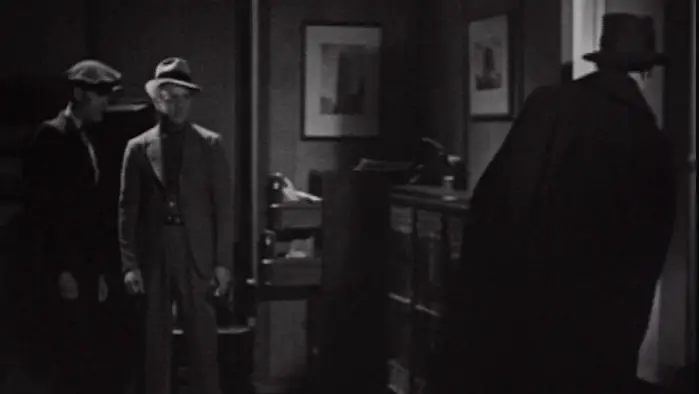
“While finalizing the details, Caleb is shot. Granston decides to continue his charade as both the attorney and The Shadow…”
Worse, on the two separate occasions when Jasper and Marcia arrive at Delthern’s mansion, both conversations go like this:
“Oh, is my father home?”
“No, you can’t see him right now.”
“Well, why not?”
“It appears he’s been shot and is now dead.”
“Oh, no…”
“I know…right?”
It’s like a bad improv show, where actors say their lines and move to the next scene. No other bothers to feel any authentic emotion about the loss of a parent because deep down, everyone knows this is drama and the actor is not really dead.
The Shadow Strikes fails to build any meaningful thrills or anxiety in its audience. I understand this is the 1930s, and film as an art is still being explored. The movie uses standard wide, medium, and close-ups without exploring interesting angles that might heighten the drama. We’re also not at the point where films have soundtracks, and it’s sorely missing.
Directed by Lynn Shores, The Shadow Strikes is the first best example of a superhero adaptation gone wrong. It fails to capture the spirit of what audiences liked about the source material as Hollywood exploits its intellectual property believing audiences would flock to theaters by name alone. Why was it successful? Considering America’s desperate need for “content” in the 30s, there were no other alternatives. They went to the theater because it was the only cheap entertainment available.
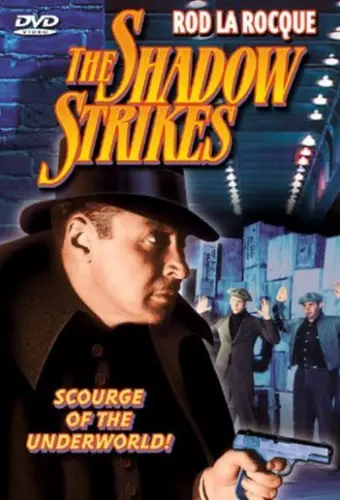
"…the first best example of a superhero adaptation gone wrong."
